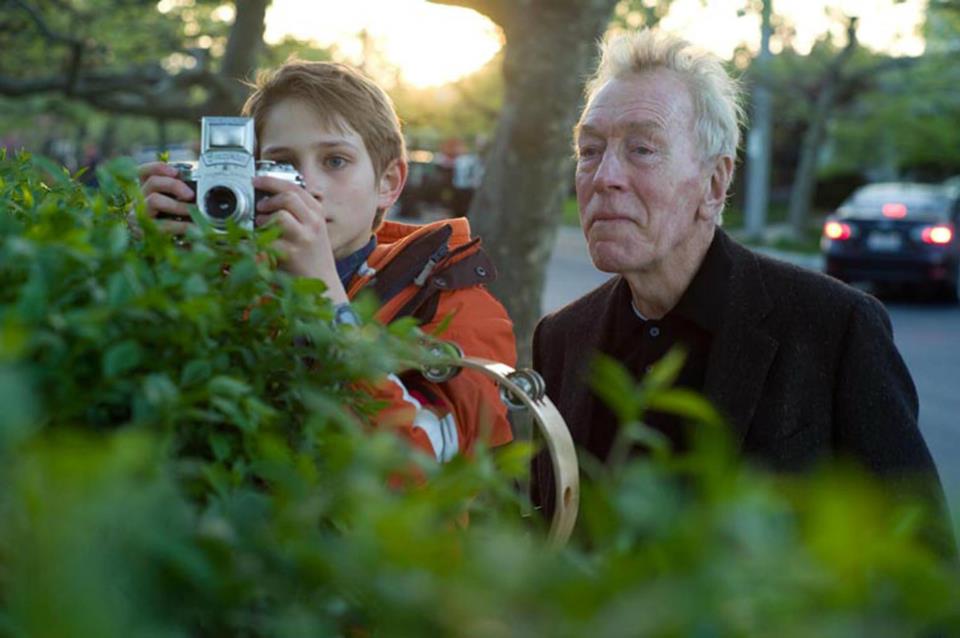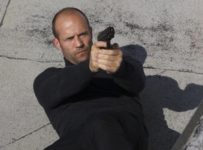An adaptation of Jonathan Safran Foer’s 9/11 novel makes a great deal of noise, but not much impact in this sentimental expedition.
[stextbox id=”grey” caption=”Extremely Loud & Incredibly Close (2011)” float=”true” align=”right” width=”200″]
Director: Stephen Daldry
Writer(s): Eric Roth
Runtime: 100 minutes
Starring: Thomas Horn, Max Von Sydow, Sandra Bullock, Tom Hanks, John Goodman, Viola Davis, Jeffrey Wright
Distributor: Roadshow Films
Country: US
Rating: Rental for Sure (?)
[/stextbox]
The attacks on the United States on September 11, 2001 left almost 3000 dead, and arguably shaped the course of the first decade of the 21st century. Shaking America out of its complacency, it is difficult to imagine an aspect of life that hasn’t been touched in some way in the aftermath of this tragic event. Jonathan Safran Foer’s novel, which serves as the basis for this film, deals with the individual voices in New York City, depicting a narrative that reflects a young man and an older man’s point of view. Extremely Loud & Incredibly Close would seem to have all the right ingredients for a gold derby, coming with the weight of Academy Award favourite Stephen Daldry, but as the film might suggest, you can’t predict everything.
Oskar Schell (Thomas Horn), the son of Thomas Schell (Tom Hanks), plays scavenger hunt games with his father around the city to help Oskar get over his social awkwardness. Through a fractured narrative, we learn that Thomas has been killed in the 9/11 attacks, and Oskar has withdrawn almost completely, especially unable to relate to his mother (Sandra Bullock). When he finds a key hidden in his father’s cupboard, in an envelope simply marked ‘Black’, Oskar treats this as another expedition and sets out to systematically visit every Black in the phonebook. Along the way he encounters hundreds of stories, including the one belonging to his grandmother’s mysterious tenant (Max Von Sydow).
Trying to makes sense of the 9/11 attacks through the eyes of a child is a bold approach, although considering the multitude of layers of meaning that have been added to the fateful date for adults, it is perhaps the most straightforward way to get a handle on the incomprehensible. Yet the vessel is just as important as the contents, and with Extremely Loud & Incredibly Close we have a lead who is almost as unfathomable as the events that inspired his story. Newcomer Thomas Horn does an admirable job with the material he has been given, but his character is so consciously written as quirky that it is difficult to pay attention to the message for sheer annoyance at the messenger.
Dealing with 9/11 was a big enough task without making the child so deliberately Asperger’s like, from his ‘genius’ plans to allegedly calming tambourine. Daldry tries for endearing, but when the just plain weird Oskar asks for kisses from strangers, it is cringing and not crying that you’ll be doing. Sustaining the Don Quixote quest (by way of The Fisher King) is a difficult task, especially when a weird kid is yelling at you for well over two hours. The appearance of Max Von Sydow promises to bring some gravitas, but as a completely mute character, this merely provides an excuse for the weird kid to yell some more. Oskar is not a bad kid, but rather grates because he is too perfect, dispensing homespun wisdom and Pollyanna virtues throughout the city like a tambourine carrying unicorn with rainbow exhaust.
Extremely Loud & Incredibly Close may think it is important, and there is little denying that all of the issues it deals with are worth exploring. At its core, the film is about dealing with grief, the relationships between a father and a son and the commonality of experience, and to the film’s credit, it eschews with the more obvious jingoistic nods and anthemic country music wisdom. Yet the film doesn’t find a thread of unity running through the stories of New York City, but instead creates one out of disparate pieces it has thrown together. The use of 9/11 doesn’t frame the story, but rather the film exploits the tragedy, using is a shorthand for sentimentality when all it has are cheap imitations of life and faux emotions copied from other similar narratives.
[stextbox id=”custom”]A forced set of emotions and a frankly annoying lead send mixed messages in what could have been a great commentary, but is instead extremely long and incredibly dull.[/stextbox]
Extremely Loud & Incredibly Close is released in Australia on 23 February 2012 from Roadshow Films.





